About Us
Our Story
At Atavistik Bio, we are discovering the next generation of precision allosteric therapeutics by leveraging the body’s natural regulators with the aim of transforming the lives of patients.
Built upon the technology platform of co-founder Jared Rutter, PhD, Professor of Biochemistry at the University of Utah and the discoveries of Ralph DeBerardinis, MD, PhD at the University of Texas Southwestern Medical Center, our Atavistik Metabolite-Proprietary Screening (AMPS) technology integrated with our proprietary AI-enabled discovery engine allows us to rapidly advance programs from discovery into the development of life changing therapies.

Leadership Team

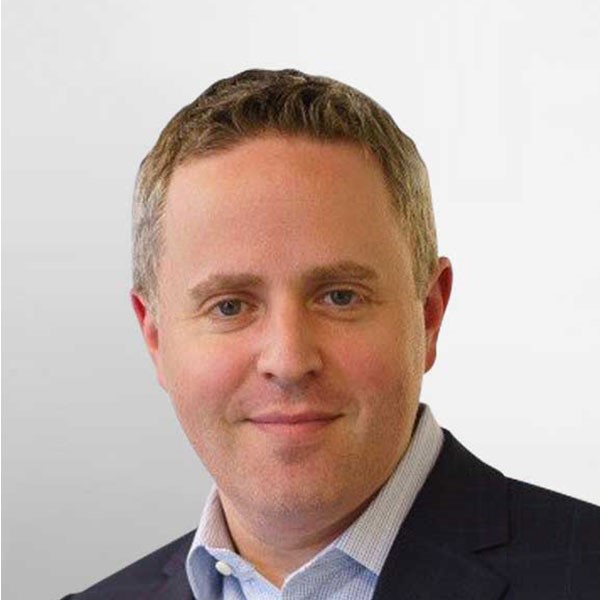
Bryan E. Stuart is Chief Executive Officer of Atavistik Bio and a Director on the Board. Bryan has more than 20 years of experience in executive leadership, corporate strategy, and business development in biopharma industry. Bryan was most recently CEO of Fulcrum Therapeutics, where he initially served as Chief Operating Officer. Prior to joining Fulcrum, he served as president and CEO of Yarra Therapeutics (a subsidiary of Array BioPharma) and CEO of Kastle Therapeutics, both companies focused on developing therapies for rare and severe diseases. Previously, Mr. Stuart served as Chief Business Officer of Civitas Therapeutics (acquired by Acorda Therapeutics) and also led business development, corporate development and strategy at both EKR Therapeutics (acquired by Chiesi Farmaceutici) and Ovation Pharmaceuticals (acquired by Lundbeck A/S). Mr. Stuart earned his MBA from the Kellogg School at Northwestern University and his bachelor’s degree from the University of Illinois.


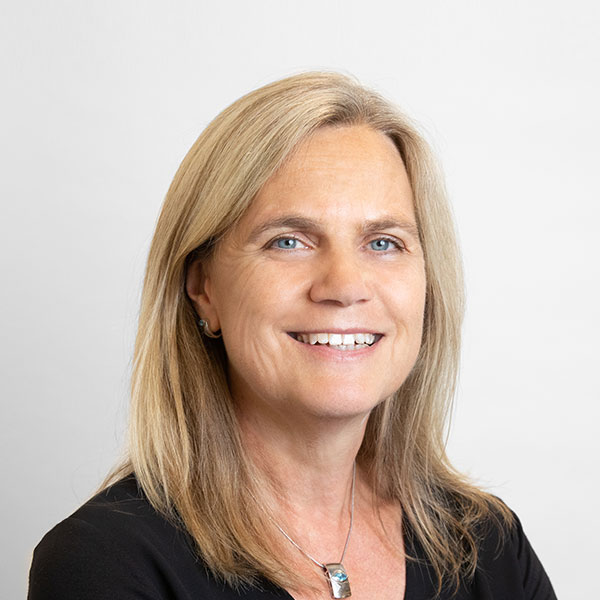
Marion Dorsch brings over 20 years of drug discovery experience in oncology, inflammation and rare genetic diseases to Atavistik Bio. She is an accomplished scientist and senior executive with a proven track record of discovering and advancing innovative therapies to patients. Most recently, Marion served as Chief Scientific Officer at Blueprint Medicines, where she led the Discovery and Translational Medicine teams and oversaw the progression of a strong portfolio of precision medicines. She joined Blueprint Medicines from Agios where she was the Vice President of Biology and responsible for novel target validation, drug discovery, and biomarker strategy across Agios’ portfolio. Prior to Agios, Marion was Director of Cancer Biology at Sanofi Oncology, Group leader in Oncology at the Novartis and part of the Inflammation group at Millennium Pharmaceuticals. During her tenure in biotech and pharma, Marion has made major contributions to the discovery and development of 6 FDA-approved precision medicines: Odomzo (SMO), Kisqali (CDK4/6), Idhifa (IDH2), Tibsovo (IDH1), Ayvakit (KIT/PDGFR) and Gavreto (RET).
Marion received her PhD in Biology from the Free University of Berlin, Germany and was a postdoctoral fellow in the laboratory of Dr. Stephen Goff at Columbia University in New York.


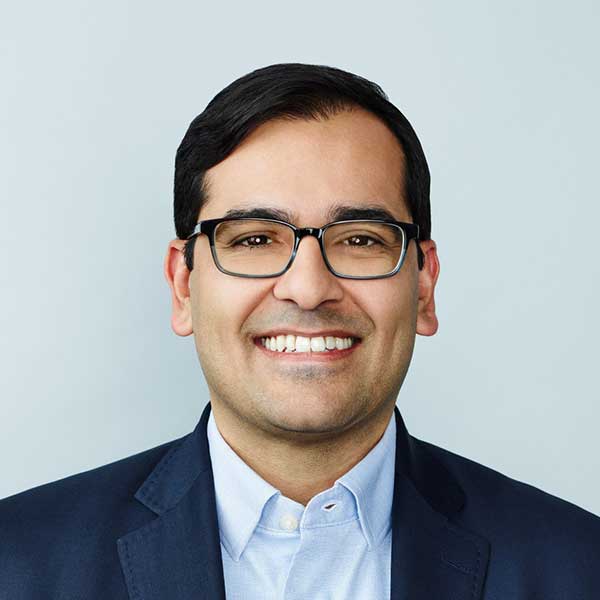
Paul Bruno is the Chief Business Officer at Atavistik Bio. Paul was most recently the Senior Vice President of Business and Corporate Development at Fulcrum Therapeutics, where he was responsible for corporate strategy, business development, program leadership, and alliance management. While at Fulcrum, Paul successfully executed several licensing and financing transactions, including the collaboration and license agreement with Sanofi in May 2024. Prior to Fulcrum, he was at ClearView Healthcare Partners, a life sciences strategy firm that specializes in working with biotech, pharma, and medtech companies. At ClearView, Paul worked with clients on corporate strategy, portfolio management, pipeline prioritization, and business development engagements. Paul completed a postdoctoral fellowship at Boston Children’s Hospital, where he focused on identifying fetal hemoglobin inducers for sickle cell disease and β-thalassemia. He also brings entrepreneurial experience, having previously co-founded and raised seed funding for an early-stage materials company.
Paul received his PhD in chemistry from the University of Michigan and a BS from Santa Clara University, where he double majored in chemistry and public health.


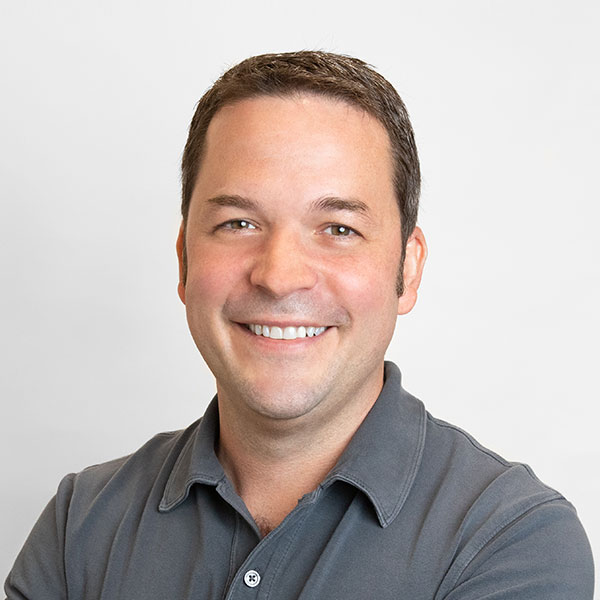
Tom Roddy has worked across many areas of the drug discovery pipeline over the past 20+ years, from pre-competitive academic collaborations to post-marketing studies. Previously, he was the Vice President of Metabolism and Proteomics at Agios Pharmaceuticals. During his tenure at Agios, he led the start of the External Innovation function. His career started at Genzyme and he has worked at several other companies such as Novartis Institutes for BioMedical Research, Merck, and Beryllium. He is an internationally recognized analytical scientist and an accomplished scientific team builder and mentor, having led many successful biomarker, analytical, and target discovery teams. He is an author on ~80 publications in research focused on disease biology, pharmacology, and analytical sciences and has been a successful collaborator with leading global academic groups and CROs in the understanding of the mechanisms and physiology of existing and novel metabolism-based therapies. He has made translational contributions to Fabrazyme, Myozyme, Anacetrapib, Idhifa, Tibsovo, Ivosidenib, and Mitapivat.
Tom received his PhD in Chemistry from The Pennsylvania State University, an MS in Chemistry from Villanova University, and a BS in Chemistry from Juniata College.


Head of Drug Discovery
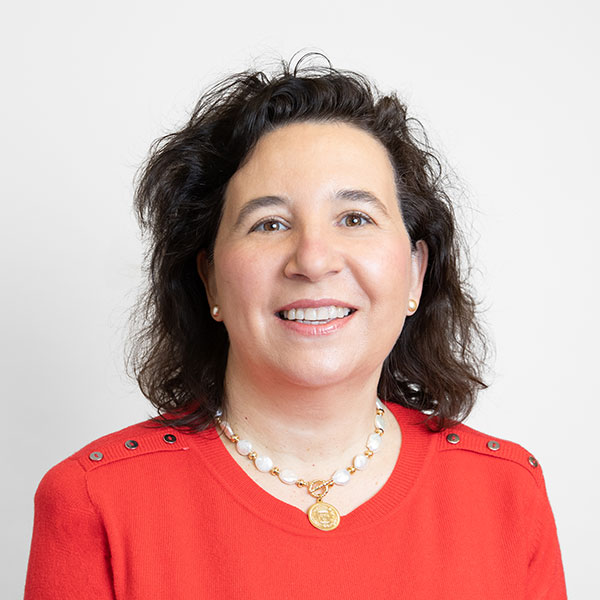
Maria-Jesus Blanco, Senior Vice President of Drug Discovery, brings over 25 years of experience in drug discovery and development working in the pharmaceutical industry and biotech. She was inducted into the Medicinal Chemistry Hall of Fame, a distinguished honor bestowed by the American Chemical Society’s Division of Medicinal Chemistry, in 2024. Maria joined Atavistik Bio from Sage Therapeutics, where she served as Head of Chemistry and Sr. Director. Maria began her career at Eli Lilly and Company in Indianapolis where she held positions of increasing responsibility over 17 years, including Director of Discovery Chemistry Research & Technologies. Her leadership, creativity, and strategic thinking have led to impactful contributions on new chemical modalities, chemical biology, protein-protein interactions, translational research, and small molecule therapeutics primarily in neuroscience and oncology. Maria has actively contributed to the delivery of 15 compounds to clinical studies.
Maria obtained her B.S. and Ph.D. degree in Organic Chemistry from the University of Santiago de Compostela, Spain. She held postdoctoral positions at Massachusetts Institute of Technology (MIT) and at University of Strasbourg, France with Nobel Laureate Prof. Sauvage. Maria has >100 scientific publications, presentations, patent and patent applications. She was the Division Chair of the ACS National Division of Medicinal Chemistry, in 2023. In 2021, she was inducted as an ACS Fellow for her lasting service to chemistry, society, and medicine. She has been recognized with the ACS Division of Medicinal Chemistry Award in 2024.

Head of Drug Discovery

Clinical Operations

Patrick brings over 25 years of clinical trial experience in the biotech and pharmaceutical industry, with expertise in early-phase precision oncology development, CRO/vendor oversight, KOL engagement, budget planning, and clinical infrastructure. Prior to joining Atavistik Bio, Patrick was the Head of Development Operations at ImmunoGen, supporting their recent EU approval of mirvetuximab soravtansine. He has also held similar roles leading the clinical operations departments at Mersana Therapeutics and notably at Blueprint Medicines, where he built the clinical operations team from the ground up, playing a pivotal role in the clinical development of Avakyt and Gavreto from initial clinical trials through marketing approval in the US and EU.
Patrick began his career in clinical research as a genetic counselor, coordinating neurogenetic studies before moving into industry to support clinical trial management at Genetics Institute, and later at Millennium Pharmaceuticals.
Patrick holds a BS from Pennsylvania State University and a Master’s degree in Genetic Counseling from the University of Pittsburgh.

Clinical Operations


Shomit Sengupta brings over 10 years of drug discovery experience focused on metabolism and related signaling pathways to Atavistik Bio. He is an accomplished scientist and manager with a strong publication record and experience in both early and late-stage drug development. Most recently, Shomit was an Associate Director at Agios Pharmaceuticals, where he managed teams of scientists responsible for validating new therapeutic targets and evaluating new indications for existing assets for the rare genetic disease portfolio. He joined Agios from Navitor Pharmaceuticals where he was the lead biologist from discovery to IND for a first-in-class modulator of leucine sensing for treatment-resistant depression. Prior to Navitor, Shomit worked on cell pharmacology screening efforts at the Center for the Development of Therapeutics at the Broad Institute, and the development and execution of clinical biomarker assays at Catabasis Pharmaceuticals.
Shomit received his PhD in Biology from the Whitehead Institute at MIT and did his postdoctoral training in the lab of Joan Brugge at Harvard Medical School.



Anil Padyana is an accomplished and innovative drug discovery leader with over 20 years of experience in the biotech and pharmaceutical industry. He is an expert drug hunter with broad expertise in molecular targets, lead discovery, mechanistic biochemistry, biophysics, and structure-based drug design (SBDD). He was previously the Director of Structural Biology and Biophysics at Agios Pharmaceuticals, where he built next-gen fragment-based drug discovery efforts resulting in the discovery of molecules to address unmet needs in precision oncology and genetically defined diseases. Prior to Agios, he was the Crystallography Team and Project Leader at Boehringer Ingelheim Pharmaceuticals, where he contributed to successful NCE and NBE drug discovery spanning cardio-metabolic, chronic kidney diseases, virology, immunology, and inflammation therapeutic areas. He started his career in biotech at SGX Pharmaceuticals in San Diego. Anil has made major contributions to the discovery and development of FDA-approved precision medicines (IDHIFA®, SPEVIGO®) and over 10 clinical stage, investigational new drugs. He is an author and co-inventor on more than 35 publications and patents.
Anil received his PhD in Biophysics and Bioinformatics from the Indian Institute of Science (IISc), India. He was a postdoctoral fellow in the laboratory of Prof. Stephen Burley at Rockefeller University in New York.



Lindsay Duhaime is the Head of Operations at Atavistik Bio, leading all operations functions to support the business needs, innovative science, and cultural aspirations of the organization. Lindsay brings over 14 years of experience in the biotech industry, with expertise in lab operations, lab planning & design, strategic planning, finance, culture & employee engagement, and crisis management. Prior to joining Atavistik Bio, Lindsay was the Head of Operations at the Novartis Institutes for Biomedical Research where she supported multiple global departments. Lindsay started her career as a bench scientist, involved in proteomics-based target identification and technology development. During her tenure at Novartis, she transitioned to operations where she held roles of increasing responsibility and scope, including successfully leading teams to support the evolution and strategic growth of several discovery research departments. Lindsay holds a MS in Biochemistry from The George Washington University and a BS in Biochemistry from the University of New Hampshire.



Jennifer Goulding brings over 20 years of financial, accounting, and operational experience to her role at Atavistik Bio. Most recently, Jennifer was Senior Director of FP&A at Surface Oncology where she was responsible for overseeing the FP&A function until it was acquired by Coherus in 2023. Prior to Surface Oncology, Jennifer held various finance positions at Bioverativ (acquired by Sanofi), Tamr, Infinity Pharmaceuticals, Perkin Elmer and Ernst & Young. Jennifer has a BA from University of California Los Angeles (UCLA) and earned her CPA license in California.

Board of Directors

Venture Partner, The Column Group

Dr. Josey joined The Column Group as a Venture Partner in 2020. Previously he served as the President, Chief Executive Officer and a member of the Board of Directors of Peloton Therapeutics, Inc., from 2013 until its acquisition by Merck in 2019. He joined Peloton in 2011 as the first employee in the role of President and Chief Scientific Officer. For over thirteen years, Dr. Josey was employed at Array BioPharma Inc., a company that he helped to build as a member of the founding management team. There he rose to Vice President of Discovery Chemistry. Dr. Josey’s previous experience also includes Amgen, Inc. and the Glaxo Research Institute. He received a BS degree in chemistry from Colorado State University, a PhD in organic chemistry from The University of Texas at Austin, and an MBA from the University of Colorado. He was a Damon Runyon-Walter Winchell Postdoctoral Fellow at the California Institute of Technology.
Board of Directors: Atavistik Bio, Inc. (Chair); Circle Pharma, Inc. (Chair); Day One Biopharmaceuticals, Inc.; Nura Bio, Inc; VHL Alliance

Venture Partner, The Column Group


Bryan E. Stuart is Chief Executive Officer of Atavistik Bio and a Director on the Board. Bryan has more than 20 years of experience in executive leadership, corporate strategy, and business development in biopharma industry. Bryan was most recently CEO of Fulcrum Therapeutics, where he initially served as Chief Operating Officer. Prior to joining Fulcrum, he served as president and CEO of Yarra Therapeutics (a subsidiary of Array BioPharma) and CEO of Kastle Therapeutics, both companies focused on developing therapies for rare and severe diseases. Previously, Mr. Stuart served as Chief Business Officer of Civitas Therapeutics (acquired by Acorda Therapeutics) and also led business development, corporate development and strategy at both EKR Therapeutics (acquired by Chiesi Farmaceutici) and Ovation Pharmaceuticals (acquired by Lundbeck A/S). Mr. Stuart earned his MBA from the Kellogg School at Northwestern University and his bachelor’s degree from the University of Illinois.



Jeff Goater joined The Column Group as a Venture Partner in 2021. Previously, he served as Chief Executive Officer of Surface Oncology. During his tenure at Surface, the company fostered an award-winning culture, advanced four programs into clinical development, completed its initial public offering and secured multiple strategic collaborations, including a transformative partnership with GlaxoSmithKline. Prior to Surface, he served as Chief Financial Officer of Voyager Therapeutics where he was one of the members of the founding management team. While at Voyager, he led its crossover financing, initial public offering and strategic partnership with Sanofi Genzyme. Previously, Jeff spent nearly a decade in investment banking, most recently as a managing director at Evercore Partners, advising on more than $100 billion in strategic transactions in the biopharma industry. He began his career as a research scientist in the field of AAV gene therapy and holds master’s degrees in microbiology/immunology (MS), pathology (MS) and business administration (MBA) from the University of Rochester. Jeff also currently serves on the boards of Ribon Therapeutics, Surface Oncology, Vaccinex and LogicBio Therapeutics.


UTSW Medical Center
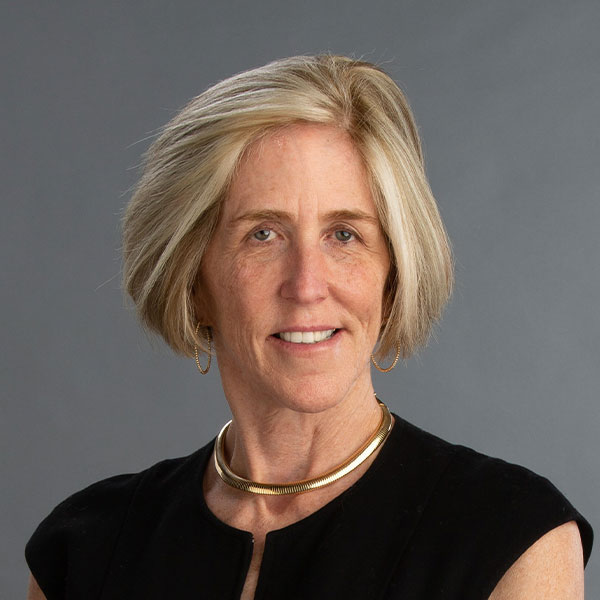
Helen H. Hobbs is a physician-scientist and Investigator of the Howard Hughes Medical Institute at the University of Texas Southwestern Medical Center (UTSW) in Dallas Texas. After attending Stanford University and Case Western Reserve Medical School, she trained in internal medicine at Columbia-Presbyterian and UTSW. She joined the faculty of UTSW in 1987 where she is Professor of Internal Medicine and Molecular Genetics. Together with Jonathan C. Cohen, she identified new sequence variations/genes contributing to differences in plasma lipid levels, which led to the development of two new lipid-lowering therapies for the prevention of heart attacks. She also has identified the first and most important genetic difference contributing to susceptibility to fatty liver disease. Gene identification is just the starting point for her studies. She has performed functional studies to elucidate the pathways and processes that are altered by the defective genes she has identified. She is a member of the National Academy of Medicine, the National Academy of Sciences, and the American Academy of Arts and Sciences. She is on the board of Pfizer Inc. and a Science Partner of the Column Group. Among the prizes she has received are the Breakthrough Prize in Life Sciences, the Grand Prix Award from the Institute of France, and the Harrington Prize for Innovation in Medicine.

UTSW Medical Center


Shaq is a Principal on the Lux Capital team with a passion for technology and a desire to invest in people. Helping turn their vision for a better world into reality. Specifically, he is excited by “building block” ideas where the value and markets unlocked downstream are greater than that of a single product. Some examples of these building blocks include: biotech, drug discovery platforms, molecular & computational tools, synbio, data infrastructure, and developer tools.
Shaq’s career journey in some ways mirrors the ethos of Lux, investing at the intersection of technology and the natural sciences. Shaq started his professional career in the aerospace and defense sector spending time at NASA and Northrop Grumman. Following, Shaq got exposure to the emerging life sciences sector at Illumina, seeing firsthand the impact DNA sequencing has had on ending human suffering. Most recently, Shaq worked at Parthenon (SSG) in San Francisco, where he advised premier private equity and growth equity firms on enterprise technology and healthcare investments.



Thilo Schroeder is a Partner at Nextech Invest and has a passion for precision medicines in cancer with a focus on identifying first and best-in-class targeted therapies.
Thilo has been a leading investor in several precision medicine oncology companies and is a board member of Revolution Medicines (RVMD), PMV Pharma (PMVP), Circle Pharma, Atavistik Bio, MOMA Therapeutics, Silverback Therapeutics (SBTX), Exo Therapeutics and Alterome Therapeutics. Past board seats include Blueprint Medicines (BPMC), Peloton Therapeutics (acquired by Merck), Black Diamond Therapeutics (BDTX), IDEAYA Bioscience (IDYA) and ImaginAb.
Thilo began his biotech career at the pioneering cancer immunology company Micromet (acquired by Amgen) while studying at Ecole Supérieure de Biotechnologie de Strasbourg, conducted research at the University of Sydney and obtained his PhD from the University of Zurich, focused on protein engineering in the development of Designed Ankyrin Repeat Proteins (DARPins), a technology now commercialized by Molecular Partners (SWX:MOLN). He also holds a MS in biotechnology from the Ecole de Supérieure de Biotechnologie de Strasbourg in France, and a BS in biology from the Technical University of Darmstadt in Germany.


Avenzo Therapeutics

Mohammad Hirmand, M.D., serves as co-founder, Executive Vice President and Chief Medical Officer (CMO) of Avenzo Therapeutics, responsible for clinical development, clinical operations and regulatory affairs. Dr. Hirmand has more than 20 years of biotechnology clinical development experience, most recently as executive vice president and CMO for Turning Point Therapeutics, which was acquired by Bristol Myers Squibb in August 2022. Prior to joining Turning Point, Dr. Hirmand was CMO of Peloton Therapeutics, which was acquired by Merck in July 2019. Prior to joining Peloton in 2017, Dr. Hirmand served as CMO of Medivation through its acquisition by Pfizer. He played a vital role in advancing XTANDI® (enzalutamide) through clinical trials that led to its approval by the U.S. Food and Drug Administration for the treatment of metastatic castration-resistant prostate cancer. His responsibilities also included the in-licensing and global clinical development of the poly ADP ribose polymerase (PARP) inhibitor, talazoparib. Before his 10-year tenure at Medivation, he held clinical development roles of increasing responsibility at Nuvelo, Inc. (now ARCA Biopharma), SuperGen, Inc. (now Astex Pharmaceuticals, Inc.), Tularik, Inc. (now part of Amgen), and Theravance Biopharma, Inc. Dr. Hirmand received his M.D. from Harvard Medical School and his B.A. in Biological Sciences and Economics from Cornell University.

Avenzo Therapeutics
Scientific Advisory Board

Dr. Ralph DeBerardinis joined the faculty of UT Southwestern Medical Center in 2008 and joined the Children’s Medical Center Research Institute at UTSW (CRI) shortly after its founding in 2012. He is Chief of Pediatric Genetics and Metabolism at UTSW and Director of the Genetic and Metabolic Disease Program at CRI. Dr. DeBerardinis is a Howard Hughes Medical Institute Investigator and has received numerous awards including the William K. Bowes, Jr. Award in Medical Genetics, the National Cancer Institute’s Outstanding Investigator Award, The Academy of Medicine, Engineering & Science of Texas’s Edith and Peter O’Donnell Award in Medicine, and the Paul Marks Prize for Cancer Research from Memorial Sloan Kettering Cancer Center. He has been elected to the National Academy of Medicine and the Association of American Physicians.
Dr. DeBerardinis’ laboratory studies the role of altered metabolic pathways in human diseases, including cancer and pediatric inborn errors of metabolism. The lab has pioneered the use of metabolomics and isotope tracing to characterize disease-associated metabolic states directly in patients, and to use disease-relevant model systems to explore how metabolic perturbations contributes to tissue dysfunction. Work from the DeBerardinis laboratory has produced new insights into disease mechanisms in numerous metabolic diseases, including by defining unexpected fuel preferences in human cancer and uncovering new metabolic vulnerabilities in cancer cells.
Dr. DeBerardinis received a BS in Biology from St. Joseph’s University in Philadelphia before earning MD and PhD degrees from the University of Pennsylvania’s School of Medicine. He completed his post-graduate clinical training at The Children’s Hospital of Philadelphia (CHOP) in Pediatrics, Medical Genetics and Clinical Biochemical Genetics. Before coming to UT Southwestern, he performed postdoctoral research at the Penn Cancer Center.

Dr. Jared Rutter is a Distinguished Professor of Biochemistry and holds the Dee Glen and Ida Smith Endowed Chair for Cancer Research at the University of Utah where he has been on the faculty since 2003. He has been an Investigator of the Howard Hughes Medical Institute since 2015. Dr. Rutter performed undergraduate studies at Brigham Young University and received his PhD from the University of Texas Southwestern Medical Center in 2001, working with Dr. Steve McKnight. After receiving his PhD, he spent 18 months as the Sara and Frank McKnight Independent Fellow of Biochemistry before joining the faculty at the University of Utah.
The Rutter laboratory has characterized the PAS kinase protein as an important factor in states of metabolic dysregulation—including obesity and diabetes. More recently, the Rutter laboratory and collaborators have identified the functions of several previously uncharacterized mitochondrial proteins, including the discovery of the long-sought mitochondrial pyruvate carrier. This knowledge has now enabled for the first time the demonstration that this critical metabolic step is impaired in a variety of human diseases, including cancer and cardiovascular disease. In addition, the Rutter lab is taking multiple approaches to understand how metabolic state influences cell fate and cell behavior decisions.
Dr. Rutter is actively involved in translating academic discoveries into therapies for patients. This has included founding and/or serving as a consultant or member of the advisory board of several companies. Dr. Rutter also serves as co-Director of the Diabetes and Metabolism Center at the University of Utah and co-Leader of the Nuclear Control of Cell Growth and Differentiation at Huntsman Cancer Institute.

Karen Allen, Ph.D. is Professor and Chair of Chemistry at Boston University. For over 25 years, she has led research teams at Boston University, in the Departments of Physiology and Biophysics at the School of Medicine, and Chemistry. She is also a Professor of Material Science and Engineering and on the faculty of the Bioinformatics program at Boston University. The structure-aided design approach in the Allen lab encompasses the use of macromolecular X-ray crystallography, small-angle X-ray scattering, bioinformatics, and kinetics.
Karen received her B.S. degree in Biology, from Tufts University and her Ph.D. in Biochemistry from Brandeis University in the laboratory of the mechanistic enzymologist, Dr. Robert H. Abeles. Following her desire to see enzymes in action she pursued X-ray crystallography during postdoctoral studies as an American Cancer Society Fellow in the laboratory of Drs. Gregory A. Petsko and Dagmar Ringe.

Benjamin Cravatt, PhD is the Gilula Chair of Chemical Biology and Professor in the Department of Chemistry at The Scripps Research Institute. His research group develops and applies chemical proteomic technologies for protein and drug discovery on a global scale and has particular interest in studying biochemical pathways in cancer and the nervous system. His honors include a Searle Scholar Award, the Eli Lilly Award in Biological Chemistry, a Cope Scholar Award, the ASBMB Merck Award, the Wolf Prize in Chemistry, and memberships in the National Academy of Sciences, National Academy of Medicine, and American Academy of Arts and Sciences. Ben is a co-founder of several biotechnology companies, including Activx Biosciences (acquired by Kyorin Pharmaceuticals), Abide Therapeutics (acquired by Lundbeck Pharmaceuticals), Vividion Therapeutics (Acquired by Bayer Pharmaceuticals), Boundless Bio, Kisbee Therapeutics, and Kojin Therapeutics.
Ben obtained his undergraduate education at Stanford University, receiving a BS in the Biological Sciences and a BA in History. He then received a PhD from The Scripps Research Institute (TSRI) in 1996, and joined the faculty at TSRI in 1997.

Dr. William Sellers is a core institute member and director of the cancer program at the Broad Institute and a professor of medicine at the Dana-Farber Cancer Institute and Harvard Medical School. At the Broad Institute, Dr. Sellers directs a research group focused on translating genomic discoveries into new therapeutics. His lab is focused on both functional genomic approaches to understanding routes for therapeutic development including digenic paralog CRISPR screens, and systematic gain-of-function lethality screens, and on creating new routes for developing therapeutics and understanding therapeutic action.
Previously, Dr. Sellers directed cancer drug discovery and early cancer clinical development at the Novartis Institutes for Biomedical Research, where he oversaw all cancer research and clinical sites from 2005 to 2016. During this time, more than 30 small molecule, biologic and cell-based cancer therapeutics entered first-in-human trials. Ten therapeutics have reached market approval, including encorafinib, alpelisib, ribociclib, asciminib and tisagenlecleucel.
Earlier, Dr. Sellers was an associate professor of medicine at the Dana-Farber Cancer Institute and Harvard Medical School and an associate member of the Broad Institute. He collaborated with his Dana-Farber and Broad colleague Matthew Meyerson to lead the Broad’s first major foray into cancer genome sequencing. Their work, as well as work by other groups including investigators at Massachusetts General Hospital, led to the identification of EGFR mutations in lung cancer – work that paved the way for EGFR-inhibiting drugs becoming standard-of-care for patients.
Among other achievements in his career, Dr. Seller’s was the founder of Civetta Therapeutics, a co-founder of Delphia Therapeutics and currently serves on the Scientific Advisory Boards of Ideaya Bioscience and Epidarex Capital. Additionally, Dr. Sellers was a previous member of the National Cancer Advisory Board.
Dr. Sellers holds a BS from Georgetown University and MD from the University of Massachusetts Medical School. He completed residency training in internal medicine at the University of California San Francisco and trained in medical oncology at the Dana-Farber Cancer Institute.


